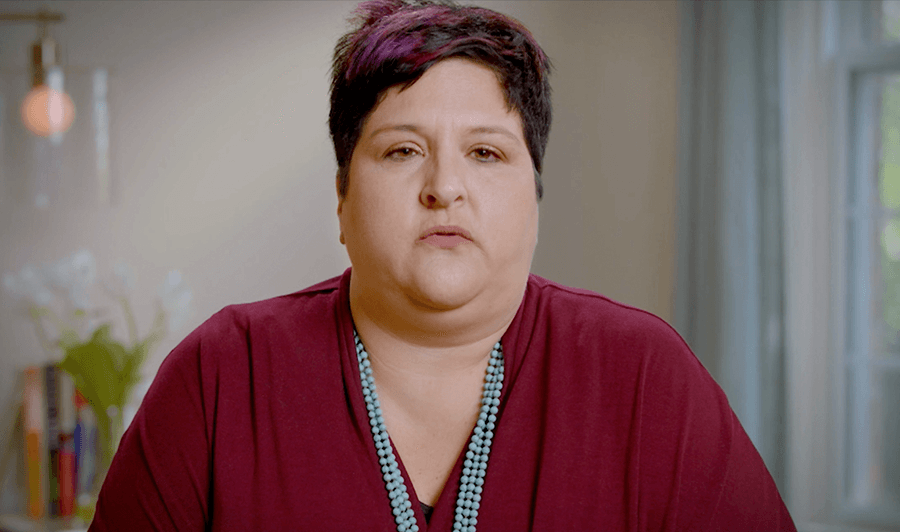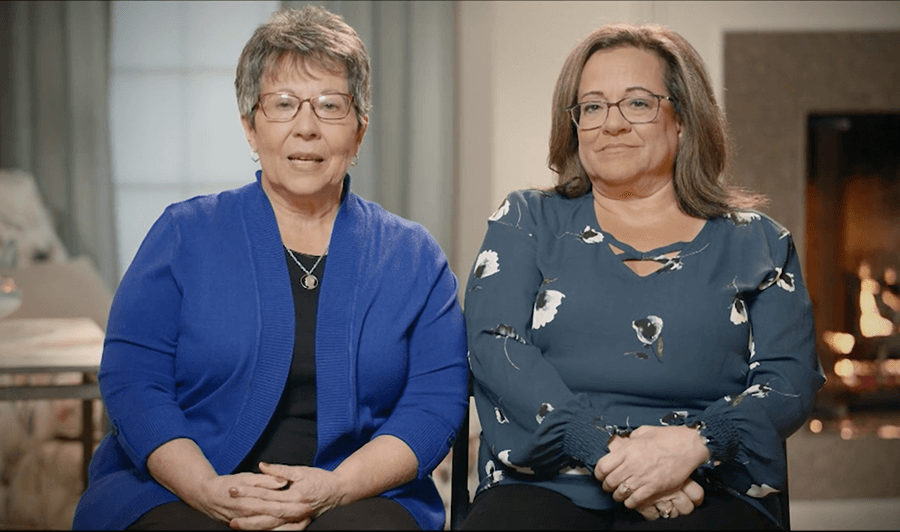Semi Accident Lawyer Representing Injury Victims in Monticello, Iowa
If you were injured in a tractor-trailer collision in Monticello, Iowa, you are in the right place. RSH Legal attorneys have represented victims of Monticello truck accidents for over 30 years. Our lawyers have recovered millions of dollars from trucking companies whose reckless truck drivers have endangered Iowa roadways.
Living in Monticello means sharing the road with large trucks. Unfortunately, semi-trucks can pose a danger to other motorists if they are not driven safely. As the second largest city in Jones County, Iowa, Monticello has a significant amount of tractor-trailer traffic.
Manufacturers like Energy Manufacturing Company, Orbis, Frontier Feeds and Yeoman and Company all attract a steady stream of semi-trucks. U.S. Highway 151 and Iowa Highway 38 run through or near Monticello and have a lot of 18-wheeler traffic.
Many truckers driving through Monticello use nearby truck stops like Highway 20 Auto Truck Plaza, Timber City Travel Plaza, and Casey’s. In addition, Monticello, Iowa is home to local trucking companies like Midwest Transfer, Hogan Trucking, and Randy Toenjes.
The result is that there are a lot of commercial motor vehicles on the road in Jones County, Iowa, and there are too many truck wrecks in Monticello in particular.
If you need an expert in Monticello truck crash cases, you should call RSH Legal at 1-800-433-0283. We offer a free, no-obligation case evaluation to truck accident victims.

Mistakes Monticello Semi Crash Victims Often Make When Getting Medical Treatment
Failing to fully reveal your pre-crash health history and habits
After a truck accident, hiding earlier injuries or sickness from your health care provider can hurt your medical treatment and your legal case.
Doctors use your past medical history to diagnose and treat you. A health care provider will usually ask if you had any injury or sickness before the tractor-trailer collision. Providing incomplete information can affect the quality of the medical care you receive.
Also, if you provide your doctors with incomplete information, their medical opinions could be rejected by the trucking company or its insurance carrier.
Always answer questions about previous injuries or illnesses honestly.
Talking with your doctor about lawsuits or lawyers
Most doctors do not want to be involved in legal cases.
A doctor’s job is to treat your medical condition. Discussing your legal case or concerns about your legal case can take the focus off treating your crash-related injury and can affect the doctor’s willingness to provide treatment or reach important conclusions about your injury condition.
Do not read this to mean that you shouldn’t tell every medical provider that you were injured in a truck wreck – you absolutely should mention the wreck at every appointment. It just means you should not talk about your lawsuit or what your lawyer told you when you are at the doctor’s office.
Showing up late or missing medical appointments
Trucking companies get to see your medical records, including any missed appointments before they will make a settlement offer. When you skip a medical appointment, your record says “DNS” or “Did Not Show.”
Excuses – no matter how valid – usually don’t make it into your records. More than one “DNS” will make the trucking company think it can argue that you did not really try to get better after your accident.
Skipping appointments or showing up late could also upset your doctor. Irritated doctors do not make good witnesses for their patients. Make a real effort to arrive on time for all crash-related medical appointments.
Failing to get your pain accurately documented in your medical records
Trucking companies and their insurance carriers will not believe that you are in pain just because you say so. They need to read about your pain in your medical records.
When trucking companies review your treatment records, they will look to see how soon you reported pain after the truck accident and how consistently you continued to report that pain to your health care providers. Doctors can’t treat pain that isn’t reported.Don’t suffer in silence; talk to your doctor about any post-crash pain and continue reporting that pain as long as you have it.

How a Monticello Truck Accident Should Be Investigated Differently than a Car Accident
Because of the sheer size of the semi involved, a truck wreck can be much more catastrophic than an ordinary car accident. Often motorists in other vehicles involved will be killed and the trucker – protected by the size of his or her vehicle – will be the sole survivor.
To get the truth about how a truck accident occurred, it is often necessary to interview unlikely, but potentially, important witnesses, like:
- Emergency personnel
- Tow truck operators
- DOT enforcement officers
- Other truckers
In addition, hiring an accident reconstruction expert who specializes in truck wrecks can help in the following ways:
- Download the truck’s black box. Commercial truck tractors have an Electronic Control Module (“ECM”) responsible for monitoring and controlling the important engine and vehicle parameters. The ECM is sometimes referred to as the “black box” for the truck and records data concerning the vehicle’s operation including speed, braking, use of the clutch, and use of cruise control. The type and amount of data recorded by the ECM vary according to the engine’s manufacturer. The data can be downloaded with the right type of software.
- Document and measure skid marks to determine the speed and direction you and the other truck were traveling at the time of the collision.
- Study damage patterns on your vehicle or on the tractor-trailer to determine the exact way the collision occurred.
- Study the weather conditions on the day of your truck accident to determine what, if any, factor the weather would have played in your wreck.
All this analysis can help prove who was really at fault in a truck accident and can help you be fairly compensated for your crash-related injuries.
Most people don’t know where to find a truck crash reconstruction expert – but we do. Call us at 1-800-433-0283 to get a free, no-obligation case evaluation.
Common Causes of 18-Wheeler Wrecks in Monticello
Tractor-trailer collisions can result from many different factors. Studies show, however, that most large truck accidents can be traced back to several all-too-common causes.
This is important because responsible trucking companies should be aware of these common crash factors and should have procedures in place to prevent them. A preventable collision is one where the truck driver or the trucking company failed to act in a reasonably expected manner to prevent it.
In judging whether a truck driver’s actions were reasonable, it is necessary to determine whether the truck driver drove defensively and demonstrated an acceptable level of skill and knowledge.
Collisions while passing
Failure to pass safely indicates faulty judgment and the possible failure to consider one or more of the important factors a professional truck driver must observe before attempting the maneuver. Unusual actions of the motorist being passed or of oncoming traffic might appear to exonerate a truck driver involved in a passing collision; however, the entire passing maneuver is voluntary, and it is the passing driver’s responsibility to take safety into account.
Collisions while being passed
Sideswipes and cut-offs are preventable when the professional truck driver fails to yield to the passing vehicle by slowing down. If the professional truck driver fails to move to the right when possible, the collision is preventable.
Collisions involving lane encroachment
Professional truck drivers sometimes feel they have been a victim of entrapment when a collision occurs as another driver changes lanes. An appropriately defensive driver, however, is rarely a victim of entrapment. Usually, in collisions involving lane encroachment, the professional truck driver has failed to yield to the other motorist. Similarly, entrapment in merging traffic is an indication of unwillingness to yield to other vehicles or to wait for a break in traffic.
Professional truck drivers must avoid squeeze plays causing crashes with parked cars, pillars, and other road structures. The truck driver can prevent such crashes by dropping back when another motorist forces the issue or contests a common portion of the road. A blind spot is never a valid excuse for lane-encroachment collisions. Professional truck drivers must make extra allowances to protect themselves in areas of limited sight distances.
Was Your Monticello Truck Accident Caused by a Truck Driver Who Violated Federal Law?
What is the applicable federal law?
The Federal Motor Carrier Safety Regulations (FMCSRs) are a comprehensive list of guidelines and specifications governing the operation and maintenance of commercial vehicles. Every company operating a commercial motor vehicle is required to be knowledgeable of and comply with all the provisions of the FMCSR applicable to that company’s operations.
Every driver and employee must be instructed regarding compliance with the FMCSRs. Equipment and accessories required by the FMCSRs must be maintained in compliance with all applicable performance and design criteria. A trucking company can be held liable for any injury resulting from its violation of an applicable provision of the FMCSRs.
Did the vehicle that hit you qualify as a “commercial vehicle”?
Whether the FMCSRs apply in your case depends upon whether the truck that hit you qualifies as a “commercial vehicle.”
Federal law defines a “commercial vehicle” as any vehicle used on the highway transporting people or property with a gross vehicle weight rating or gross combination weight rating or gross vehicle weight rating or gross combination weight of 10,001 lbs. or more.
This means if the vehicle plus trailer plus load equals more than 10,001 lbs. then the vehicle is a commercial vehicle. Transporting property means carrying any tools or equipment as part of a commercial enterprise.
The result is that the owner and/or operator of any business vehicle and/or trailer with any load which in combination weighs more than 10,001 lbs. is a commercial vehicle and must follow all the federal regulations applicable to commercial vehicles.
Straight trucks, work vans, large pickup trucks with trailers, landscaping vehicles, HVAC work vehicles, plumbing trucks, and utility trucks may fall within this definition of a commercial vehicle.
Whenever you are injured by a company vehicle, a smart attorney will check on the weight of the vehicle, trailer, and load to determine if you have a commercial vehicle accident governed by the FMCSRs.
What Should You Do After a Serious Truck Wreck?
It is important to educate yourself promptly after an Iowa truck accident. Remember, the general deadline for taking legal action in Iowa is two years after the date of your wreck. A person is rarely disadvantaged, however, by starting a search for a qualified truck accident attorney as soon as possible after a serious truck accident.
Even after reviewing our website, we are sure that you probably have specific questions that are still unanswered. To provide you with straight answers to those questions, RSH Legal has created a free case evaluation process that we do over the telephone for anyone injured in a tractor-trailer collision in Iowa.
During this free 20-minute telephone call, you get a personalized, one-on-one case review with an experienced Iowa truck accident attorney who will:
- Identify the important legal deadlines in Iowa that cannot be missed if you want compensation for your truck accident injuries;
- Recommend legal strategies for getting your medical bills paid while you are waiting for a settlement or verdict;
- Reveal the steps you should be taking to document your truck accident-related harms and losses; and
- Give you an expert evaluation of whether you really need an attorney for your Monticello truck accident claim.
While the call does need to be limited to 20 minutes, you will have plenty of time to get specific information and concrete recommendations.
Please be assured that these calls are not sales pitches. Our truck accident case evaluations are a no-cost, no-obligation opportunity to get the essential information you need to make good decisions about your case.
You do not have to sit and wonder what to do next. Contact RSH Legal today.

RSH Legal, located in Cedar Rapids, handles truck accident claims throughout Iowa, including in Monticello.
A car came through the median and we were hit head on. Every bone in my body from my lower jaw down to the bottom of my feet was broken. My medical bills were in the hundreds of thousands of dollars. I can’t imagine going through something like this without someone like Tim or RSH Legal.
See more Client ReviewsClient Reviews









